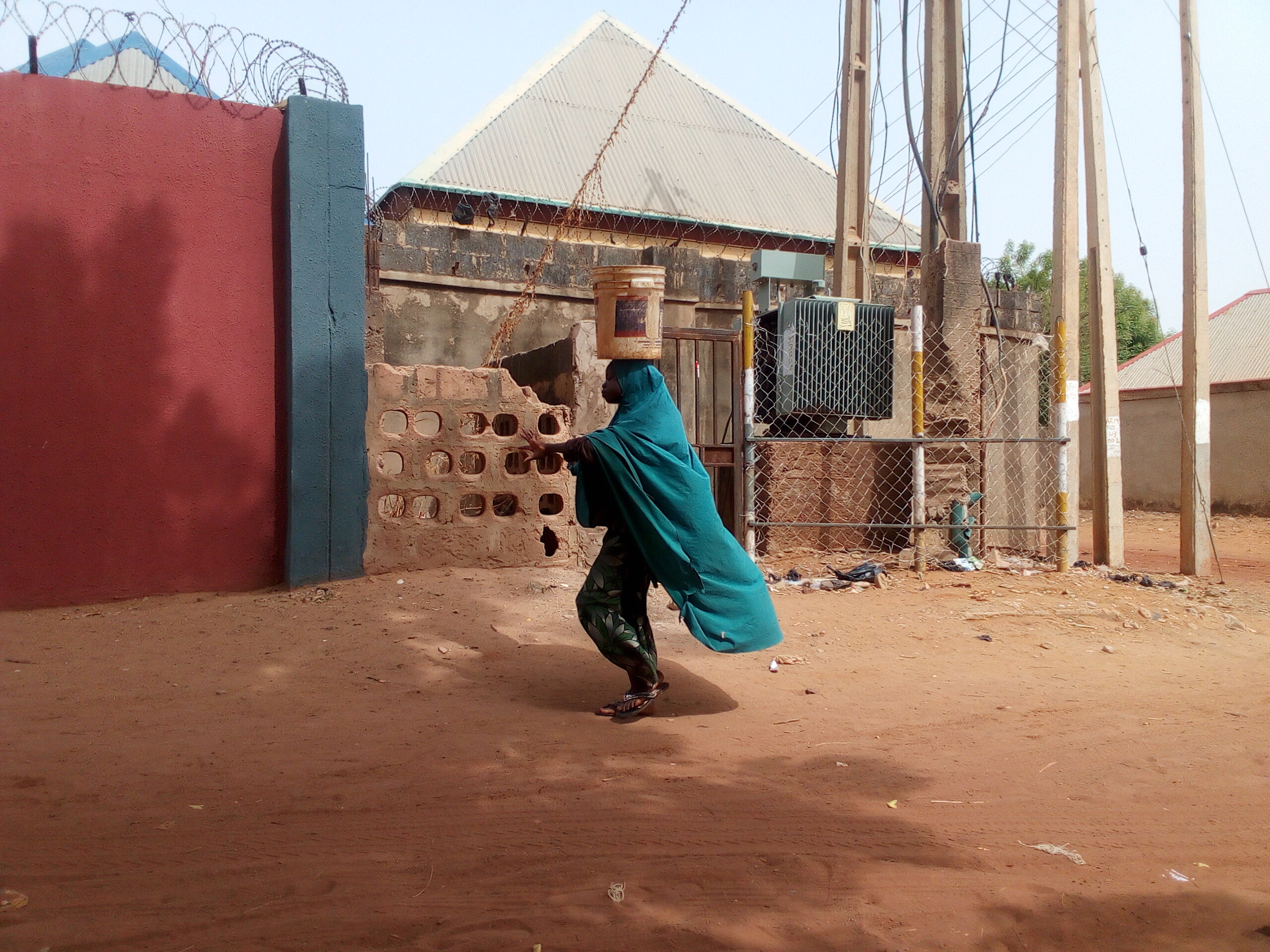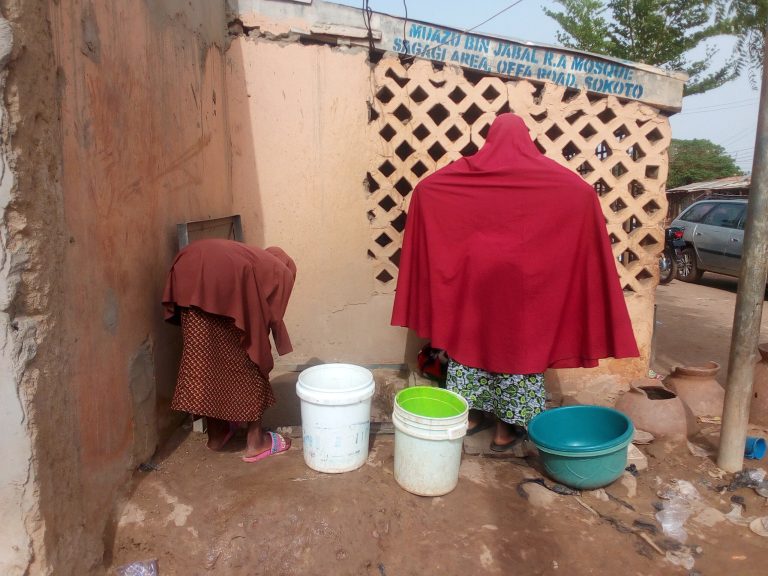In many parts of Sokoto State, fetching clean water has become a daily struggle for schoolgirls, severely affecting their education and well-being.
Every morning, before school even begins, girls across the state walk long distances carrying buckets and jerricans in search of clean water. The few available wells, boreholes, and reservoirs are often far from their homes. Long queues and unreliable supply mean hours are lost before they can return, assist their families, and finally head to school—often late.
ASHENEWS spoke to several girls who shared their struggles. They describe feeling exhausted and frustrated from waking early, walking long distances, and waiting in line just to fetch water—before they can even prepare for school.
Water comes before class
A student at Government Girls School on Offa Road, Nafsy Ibrahim describes her exhausting morning routine:
“I’m in senior secondary school, but I usually get to school by 9:00 a.m., even though classes start at 8:00 a.m. I fetch water from a well near a mosque close to my house, but there’s not always water. It takes about 30 to 40 minutes just to fetch one 15-litre bowl.”
She often has to fetch five to six bowls daily, to meet her family’s needs.

“My mother needs water while I’m away, and I have six younger siblings who need to bathe before school.”
Even arriving at the well by 6:30 a.m., she finds several people already there.
“Sometimes I have to wait 10 to 15 minutes just for the water to resurface. It’s really hard, especially because the taps near our house don’t work.”
“We depend on the reservoir, but it’s never enough”
Comfort Simon, a student living in the Army Barracks, depends on a nearby reservoir.
“It only starts supplying water around 8:00 or 8:30 a.m. By then, many jerricans are already lined up.”
With only six functioning taps, Comfort must place her jerricans early—by 6:30 or 7:00 a.m.—or risk missing out.
“I carry eight jerricans, enough for a day. After filling them, I push them home in a wheelbarrow, then get ready and ride a motorcycle to school.”
For three days, the reservoir ran dry due to a lack of supply.
“I had to beg a nearby pure water company to let me fetch water. Thankfully, they agreed. If not, I don’t know what we would have done.”
“Water now costs more than my books”
Grace Emmanuel, who lives near the airport area, described the cost burden her family faces:
“We get water from a reservoir near Winning Faith Church, but we have to pay—₦50 per jerrican.”
Her family needs 10 jerricans daily, costing ₦500 per day.
“That’s ₦3,500 a week and ₦14,000 a month. It’s too much. Before, our taps ran every few days. But since February, we haven’t gotten any water at all.”
As a result, Grace frequently arrives at school hours late:
“Sometimes I get to school by 9:00 or even 10:00 a.m. I miss 3–4 subjects, and sometimes I only arrive in time for break. It makes me really sad.”
Her plea is simple:
“I want the governor to please fix the water supply. We just want the taps near our houses to work again.”
“Even water vendors are running dry”
Abigail Samson shared how she now struggles to buy water from maruwa (local vendors).
“It used to be easy—₦100 per jerrican. Now it’s ₦150. The price went up because there’s no electricity and no diesel for the water board’s generators.”
Worse still, the vendors are harder to find.
“Before, I’d see them right outside. Now I have to walk far, and sometimes I have to follow them to where they get their water.”
She remembers when things were easier.
“When our taps worked, I could get water for ₦80. Now, if you can’t pay ₦150, they just leave—you have no choice.”
Water board manager explains the dry taps
Mr. Bello Ali, manager of the Offa Road Water Board, explained the water shortages:
“We normally supply water to all reservoirs in Offa and Airport Road. But for the past three days, we haven’t been able to due to low electricity and the high cost of diesel.”
The board requires 60 to 70 litres of diesel daily to pump water.
“Our power is tied to the Army Barracks, but there has been no light for days. The diesel we have isn’t enough.”
He also addressed why home taps aren’t receiving water:
“Most household pipes are broken. When we send water through them, it leaks and gets wasted. That’s why we now only supply the main reservoirs.”
As voices like Nafsy, Comfort, Grace, and Abigail continue to call out, it’s clear: solving Sokoto’s water crisis isn’t just about infrastructure—it’s about education, equity, and the future of its girls.


